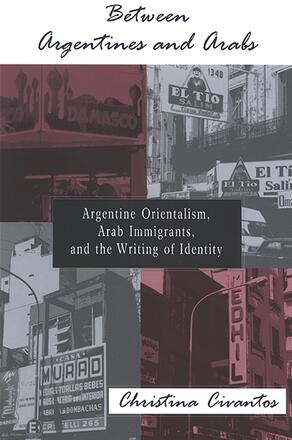
Between Argentines and Arabs
Argentine Orientalism, Arab Immigrants, and the Writing of Identity
Alternative formats available from:
Examines the presence of Arabs and the Arab world in nineteenth- and twentieth-century Argentine literature by juxtaposing works by Argentines of European descent and those written by Arab immigrants in Argentina.
Description
Between Argentines and Arabs is a groundbreaking contribution to two growing fields: the study of immigrants and minorities in Latin America and the study of the Arab diaspora. As a literary and cultural study, this book examines the textual dialogue between Argentines of European descent and Arab immigrants to Argentina from the mid-1800s to the mid-1900s.
Using methods drawn from literary analysis and cultural studies, Christina Civantos shows that the Arab presence is twofold: "the Arab" and "the Orient" are an imagined figure and space within the texts produced by Euro-Argentine intellectuals; and immigrants from the Arab world are an actual community, producing their own texts within the multiethnic Argentine nation. This book is both a literary history—of Argentine Orientalist literature and Arab-Argentine immigrant literature—and a critical analysis of how the formation of identities in these two bodies of work is interconnected.
Christina Civantos is Assistant Professor of Languages and Literatures at the University of Miami.